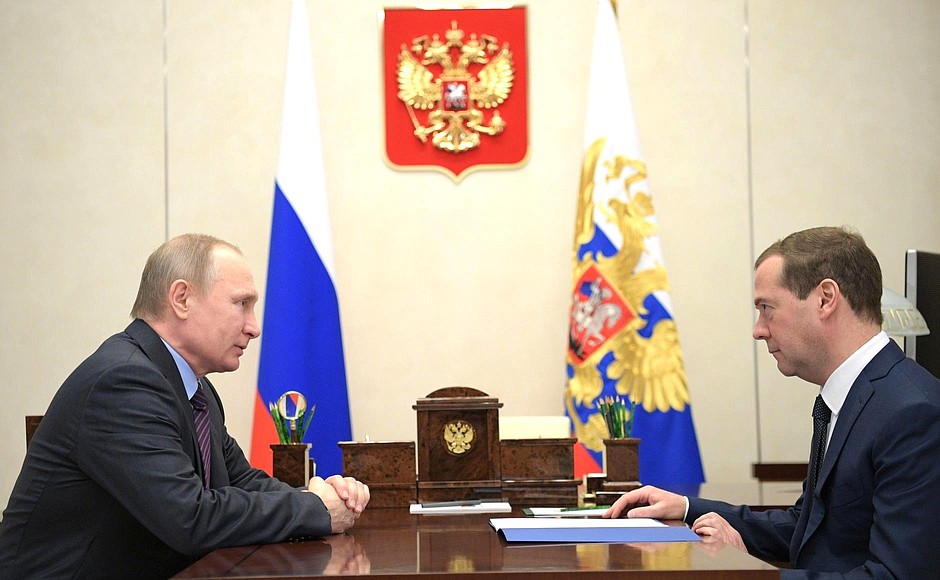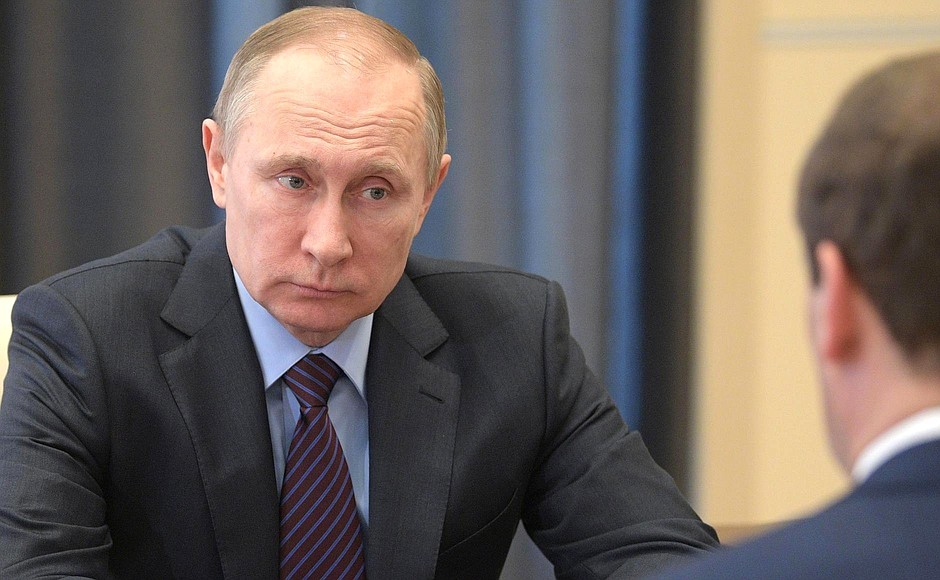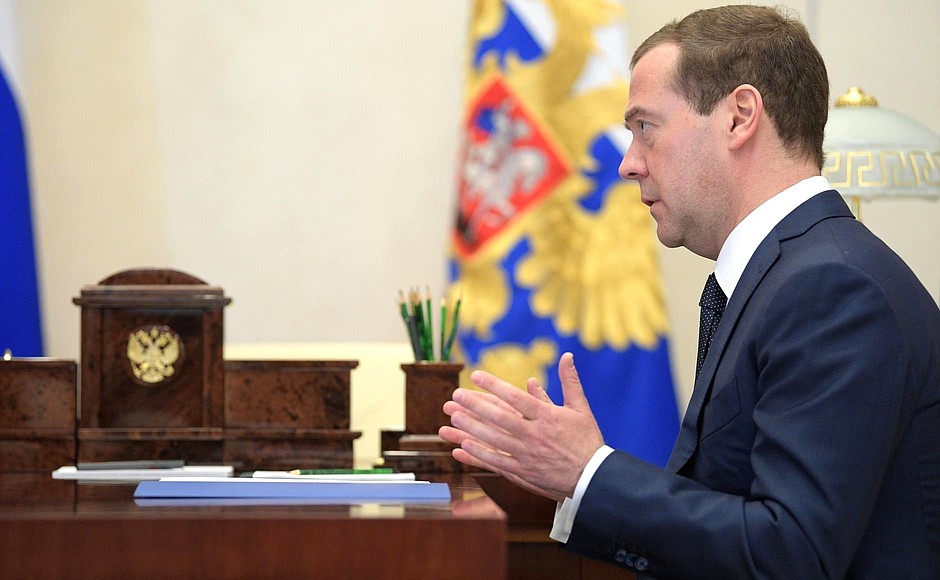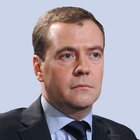President of Russia Vladimir Putin: Mr Medvedev, on April 19 you will present to the State Duma the Government’s report on its work last year. What will you be presenting? What will you tell the Duma deputies, and, of course, the public, the country at large?
Prime Minister Dmitry Medvedev: Mr President, under the Constitution, the Government reports on its work over the previous year. This time, the Government can present a relatively good assessment of the current state of the Russian economy.
A number of analytical agencies that monitor the situation in our economy confirm these assessments. They note that our country has moved away from rather complicated development scenarios and is now on a more positive track, and this is reflected in their assessments. I am only citing this as an expert opinion.
Overall, the economic situation really has changed over the last year. The economy is growing. We saw this at the end of last year, and at the start of this year. One important result, in particular, was that industrial production growth was up by 1.3 percent. This shows that our industry is picking up again, though this is the average growth.
I will provide our colleagues in the Duma with information on individual sectors that have shown particularly impressive growth. The pharmaceutical industry, for example, has grown by nearly 24 percent. This is very important because our pharmaceutical industry assists in developing the production of modern medicines, including those classed as vital and most important. Around 70 percent of vital medicines are produced in Russia now. They are cheaper, as they are not purchased with foreign currency, and this industrial growth creates a general positive environment for development.
We see a similarly positive picture in agriculture, which posted growth of 5 percent last year. I think this is the consolidated result of the efforts the authorities have made over these past 15 years. The agricultural sector has undergone radical transformation over this time. It now feeds the entire country and has tremendous export potential. Modern investment is driving its growth. Most importantly, we see here how growth in one sector benefits development in other sectors. Spurred by growth in agriculture, farm machinery manufacturing is also developing. Production of farm machinery, combine harvesters and tractors was up by 60 percent. The growth in this sector in turn gives further support to agricultural growth. This is what they call a synergetic effect, and it is very positive, of course.
Unemployment remains within manageable limits. It stood at 5.5 percent last year. This year, we expect it to be around 5 percent of the economically active population, as measured using the International Labour Organisation’s methodology. It is worth remembering in this respect that unemployment in most European countries is currently around 10 percent of the economically active population. In other words, our support measures are keeping everything within reasonable limits.
Vladimir Putin: In some countries it is even higher.
Dmitry Medvedev: Yes, some countries have higher rates. I simply named the average figure for the European Union.
Inflation, as we know, has also come down. It was 5 percent year on year, and this is an unprecedentedly low rate in Russia’s recent history. For ordinary people, this means the chance to buy foodstuffs and goods without paying a mark-up for inflation, which, I would like to remind you, was in the double digits just a few years ago. Now, we are down to 5 percent, and this year, as we know from the forecasts, we plan to bring it down to less than 4 percent. This is tremendously important because people can plan their income and spending.
Speaking of income, a positive feature of our revenue last year is that non-primary, or non-oil revenue accounted for nearly two-thirds, or more precisely 64 percent of total revenue. This means that the structure of our economy is changing. Of course, this is linked to fluctuating oil prices. They have been growing slightly this year, and the economic structure is changing a little, but the overall direction is clear: non-primary revenues are growing, and primary revenues are decreasing. We need to maintain this course.
Our budget deficit and sovereign debt are at an acceptable level. In fact, the sovereign debt has not increased, and we are doing our best to reduce the budget deficit. In keeping with your instructions, we have formulated measures to reduce budget deficit in the next three years.
As per the President’s instructions, the Government is implementing 10 major priority projects. You chair the council responsible for this. The Government is working on specific priorities. I would like to update the deputies on our achievements in this sphere, because these priorities concern everyone. These priorities include healthcare, education, mortgages, housing and utilities, infrastructure (including exports), small businesses, regulation, the situation in single-industry cities and road building. This, in fact, is at the centre of our discussions and the cause of numerous related problems.
I would also like to say that despite the major economic difficulties of the past few years, we have held in place a moratorium on raising taxes, as per the President’s instructions, which I consider to be of great importance for business. We have kept the taxes at their current level despite proposals to raise certain taxes to resolve certain problems. We have not agreed with these proposals. I believe that this is crucial for maintaining a stable investment climate in the country. However, we are now acting in line with your instructions to prepare proposals on amending the tax system for the next planning period.
I would also like to speak about our efforts to keep an internal balance between revenue and spending by assisting the regions. Our regions are all very different. There are 85 of them, and some of them are wealthier, while others have fewer sources of revenue and growth. The federal budget system’s task is to balance these differences and allocate the necessary funds. Last year, total budget subsidies and transfers to the regions came to 1.5 trillion rubles. This is a very substantial figure and it is used to fuel regional development, build roads, schools, and resolve issues concerning other social facilities.
Mr President, I intend to brief the deputies on all of this.
VladimirPutin: Mr Medvedev, as you know, I am in constant contact with members of the Federation Council and State Duma deputies. I am familiar with the range of issues that interest them. Usually, the presentation of the government report is followed by a question and answer session. I can give you some pointers here. Aside from specific issues concerning the social sector (healthcare, housing policy and so on), there are also more fundamental issues of concern to the deputies, and I think they have great significance for our economy’s development. I am referring here to our main task, namely, developing a modern, high-tech economy in Russia.
We can achieve this goal only if we attract investment. Favourable conditions are taking shape today for high-tech imports, with the ruble growing stronger. This is a fundamental factor. The floating exchange rate makes the situation now better, now less attractive, but given these circumstances, it would probably be fair to reflect on additional measures to support investment in the Russian economy. There will probably be questions along these lines, and we will discuss this further now. In this respect, there are some proposals that it would probably be worth reflecting on first, consulting with your colleagues in the Government, and perhaps coming to a joint decision in discussion with the parliament.
DmitryMedvedev: Fine, Mr President, we will do this. Yes, developing an efficient, high-tech economy, an economy that generates most of our revenue, freeing us from reliance on oil revenue, is a central item on our agenda.
VladimirPutin: The next step, of course, is to create new high-tech and well-paid jobs.
DmitryMedvedev: Yes, all the more so as we have been working on this for several years now and are creating these jobs. In some areas, this process is moving faster, in others, it is slower. The 2012 Executive Orders set the goal of creating a large number of efficient jobs in high tech sectors and in modern industry.
Vladimir Putin: Thank you.
<…>



